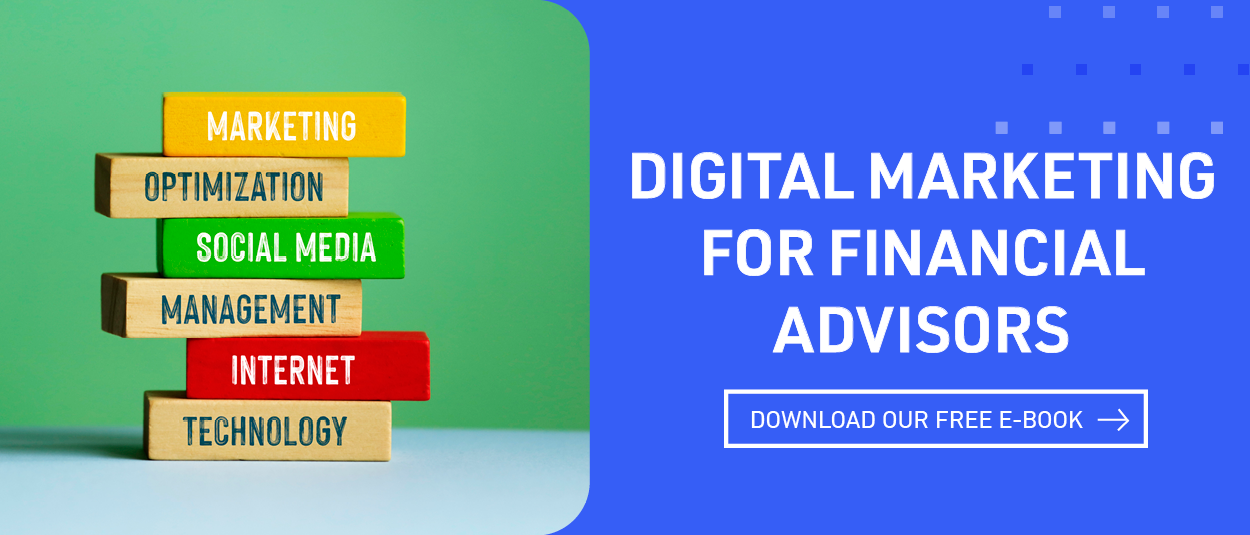3 Financial Advisor Marketing Strategies For 2023
In 2023, the top three marketing strategies for financial advisors include leveraging their digital marketing exposure, focusing on personalization and client experience, and utilizing thought leadership and content marketing to build their online credibility, trust, and visibility.
While these strategies have evolved over time, they remain highly effective in helping financial advisors produce new leads and convert them into revenue-producing clients.
We live in a digital world. Does your financial advisor marketing strategy? Level up your approach with the help of Paladin Digital Marketing!
Increasing numbers of investors are using the Internet to:
- Find financial advisors
- Research financial advisors
- Contact financial advisors
This puts a lot of power in the hands of investors because they have the digital resources they need to determine which financial advisors they want to interview. And, they are anonymous until they initiate contact.
Therein lies the challenge for financial advisors. Their challenge is to use digital marketing to convince investors to relinquish their anonymity and contact them for initial interviews.
Digital Marketing for Financial Advisors in 2023
Far and away, digital marketing is the most important marketing strategy that will be employed by financial advisors in 2023 and beyond.
Financial advisors must have a strong online presence to reach potential clients in today's digitally connected world. This includes:
- A well-designed, user-friendly website optimized for search engines (SEO)
- A strong presence on the Internet so they are easy to find
- Investing in search engine marketing (SEM) like Google Ads. Facebook, and others
- A presence on social media platforms like LinkedIn, Facebook, and Twitter to engage with clients and share informative content.
In 2023, digital marketing has emerged as the #1 marketing strategy for financial advisors. This paradigm shift is attributable to several factors, including the rapid growth of internet usage, increased reliance on online platforms, and the evolving preferences of investors.
Financial advisors have recognized the immense potential of digital marketing in reaching new clients, building brand awareness, and boosting the growth of their firms.
One of the primary reasons digital marketing is so effective for financial advisors is its ability to target specific demographics. Financial advisors can leverage data-driven insights to customize their marketing campaigns and reach potential clients based on factors like age, income, location, and interests. This targeted approach maximizes return on investment by ensuring that marketing efforts resonate with the intended audience.
Digital marketing offers financial advisors a more cost-effective alternative to traditional marketing strategies, such as print, television, or radio advertising. Online marketing channels like social media, email marketing, and search engine optimization (SEO) often require a lower initial investment and can deliver higher returns over time. By reducing costs and increasing revenue, digital marketing enables financial advisors to allocate resources more efficiently.
Digital marketing provides financial advisors with real-time data and analytics, allowing them to track campaign performance and make data-driven decisions. With precise metrics at their fingertips, advisors can continually refine their marketing strategies, optimize their approach, and ensure maximum effectiveness.
Today's investors expect personalized and responsive interactions with service providers. Digital marketing allows financial advisors to engage clients through multiple channels, such as social media, email, and content marketing. By delivering valuable information and fostering two-way communication, advisors can build trust and credibility with their audience, leading to stronger client relationships.
As the digital landscape continues to evolve, so do the preferences and behaviors of investors. Digital marketing enables financial advisors to adapt quickly to these changes, ensuring they stay ahead of the curve and maintain a competitive edge. With new technologies and trends emerging constantly, a well-rounded digital marketing strategy can help financial advisors stay relevant and connected with investors.
Financial Advisors Market Personalization & Client Experience In 2023
In an industry where trust and relationships are crucial, financial advisors should prioritize personalization and exceptional client experiences. This can be achieved by leveraging data analytics and customer relationship management (CRM) tools to better understand each client's unique needs and preferences, and then tailoring services, communication, and content accordingly. This may also include offering personalized financial planning tools, webinars, and regular check-ins.
Personalization and client experience have become increasingly important in the marketing of financial advisor services in the digital world we live in. With the rise of technology and the growing expectations of clients, financial advisors must focus on delivering customized and engaging experiences to attract and retain clients.
One way personalization impacts marketing is by allowing financial advisors to tailor their messages to the individual needs and preferences of each client. By analyzing client data such as age, income, and investment goals, financial advisors can create targeted marketing campaigns that speak directly to their clients' unique needs. This not only improves the effectiveness of their marketing efforts but also enhances investor experiences by showing that the financial advisor understands and cares about their individual needs.
Additionally, personalization can extend beyond marketing to the overall investor experience. By offering personalized investment plans, financial advisors can provide investors with customized investment strategies that align with their unique goals and risk tolerance. This not only enhances the investor experience, but it also builds trust and loyalty between the investor and financial advisor.
Investor experience is also critical in the marketing of financial advisor services. In today's digital age, investors expect seamless and engaging experiences across all touchpoints, from the initial inquiry to ongoing communication and account management. Financial advisors who prioritize the investor experience by offering easy-to-use digital platforms, personalized communication, and prompt support can differentiate themselves in a very competitive marketplace.
Moreover, positive investor experiences can lead to referrals and positive reviews, which are critical for the success of financial advisors. By providing exceptional investor experiences, financial advisors can build a loyal client base and increase their chances of generating new business through word-of-mouth marketing.
Thought Leadership & Content Marketing for Financial Advisors in 2023
Financial advisors can build their reputation and authority in the industry by sharing informative, engaging, and relevant content on various digital platforms. This can include publishing blog posts, articles, podcasts, and videos, or hosting webinars on topics related to personal finance, investments, and economic trends. By offering valuable insights and actionable advice, financial advisors can position themselves as experts in their field and attract clients seeking informed guidance.
Remember that the most effective marketing strategies will vary based on a financial advisor's target audience and unique business objectives. It's important to continually evaluate and adjust these strategies to ensure they remain relevant and effective in an ever-changing industry landscape.
In 2023, thought leadership and content marketing will continue to be essential components of successful marketing strategies for financial advisors. With the increasing prevalence of digital marketing, advisors must differentiate themselves from competitors and establish trust with potential clients by providing valuable and informative content.
Thought leadership, in particular, will play a critical role in this process. By positioning themselves as experts in their field, advisors can showcase their knowledge and experience while providing valuable insights and guidance to their audiences. This can take the form of blog posts, white papers, webinars, podcasts, and other types of content that offer actionable advice on financial planning, investment strategies, and other relevant topics.
Content marketing will also be increasingly crucial for financial advisors in 2023. By creating and sharing informative and engaging content, advisors can attract and engage potential clients while building their brand and reputation. This may include social media posts, videos, infographics, and other types of content that provide value to their audiences.
One of the key benefits of thought leadership and content marketing for financial advisors is the ability to establish trust and credibility with potential clients. By providing valuable information and insights, advisors can position themselves as reliable sources of information and build relationships with their audience. This can be especially important in an industry where trust and credibility are essential for success.
Another benefit of thought leadership and content marketing is the ability to reach a wider audience. By creating content that is informative and engaging, advisors can attract potential clients who may not have been aware of their services otherwise. This can be especially important for advisors who want to expand their client base or reach new markets.
Overall, thought leadership and content marketing will continue to be essential components of successful marketing strategies for financial advisors in 2023. By establishing themselves as experts in their field and providing valuable insights and guidance to their audiences, advisors can attract and engage potential clients while building their brand and reputation.


